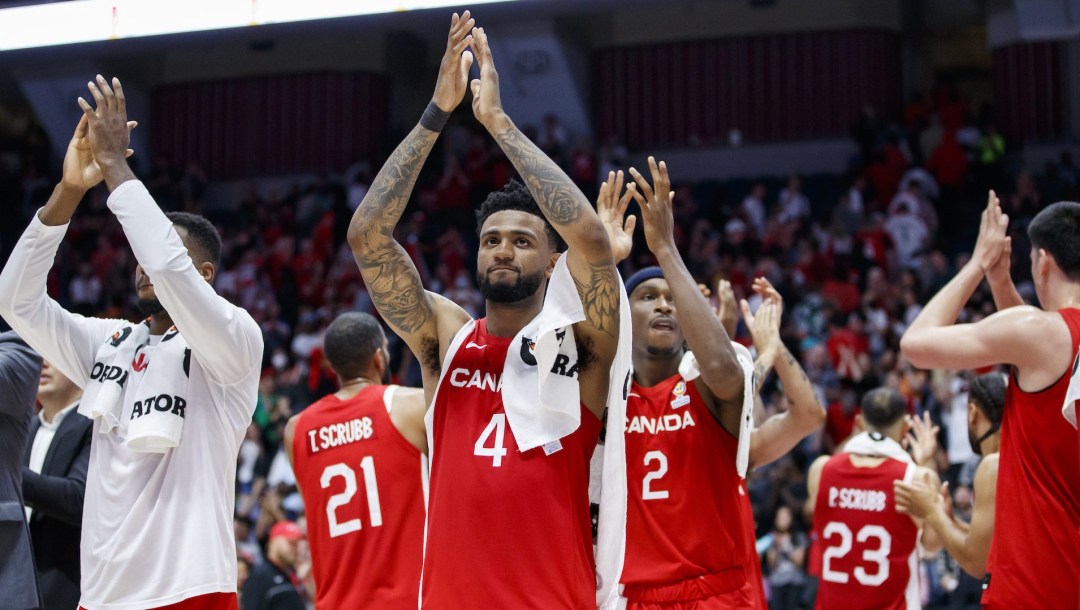Hoop Dreams: Canada’s road to the 2023 FIBA World Cup
This article was updated on November 1, 2022
The 2023 FIBA Basketball World Cup is less than a year away and Team Canada has every intention of being part of it.
The tournament, co-hosted by the Philippines, Japan and Indonesia, will take place from August 25 to September 10, 2023. Thirty-two teams will compete, with Canada looking to participate for the 15th time in history.
Canada is now playing in the second round of qualifying in the FIBA Americas zone, with four games left to play. Two are coming up this month: home games in Edmonton against Venezuela (November 10) and Panama (November 13).
After cruising through the first round of qualifying, head coach Nick Nurse’s team is facing stiffer competition now. Let’s take a look at where things currently stand.
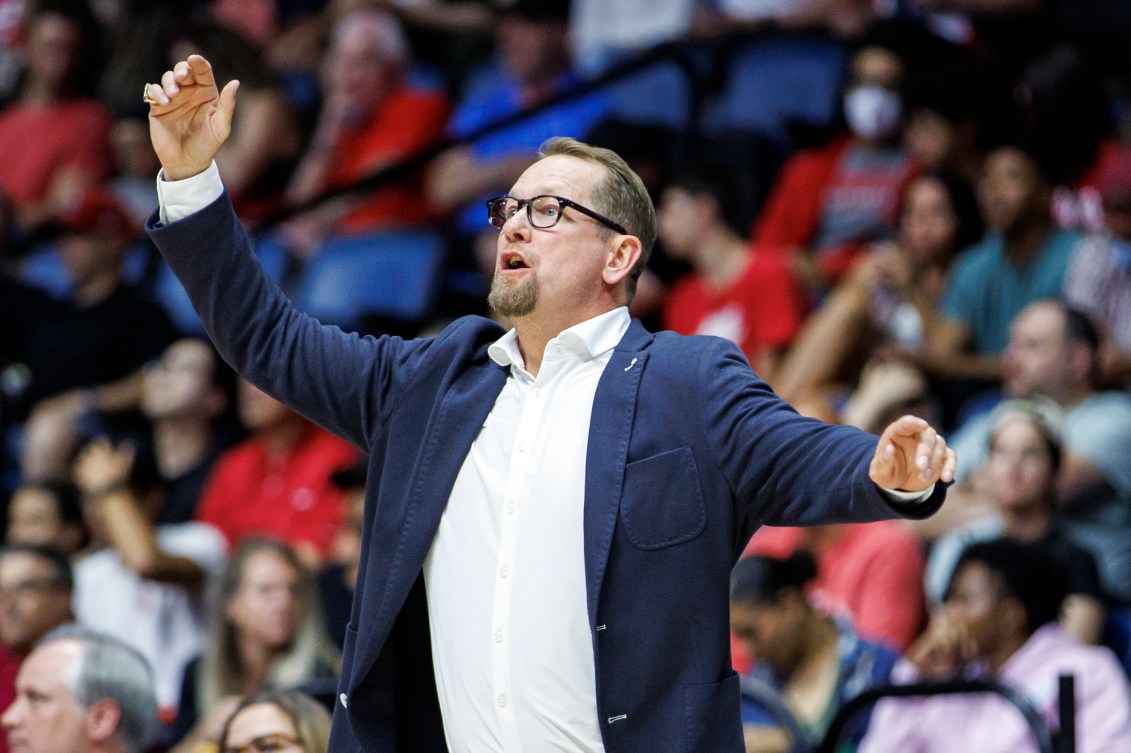
How does FIBA World Cup qualifying work?
The FIBA Americas region, in which Canada plays, has been allotted seven of the 32 spots in the 2023 FIBA World Cup.
Sixteen teams played in the first round of qualifiers which took place between November 2021 and July 2022. There were four groups of four (Groups A to D), with the top three in each group advancing to the second round.
Those remaining 12 teams are split into two groups of six (Groups E and F). Importantly, each team’s results (record and points) from the first round carry over into the second round.
Each team will play six games in the second round, three at home and three away against the teams in their group they didn’t face in the first round. The top three teams from each group plus the best fourth-place finisher will earn World Cup berths.
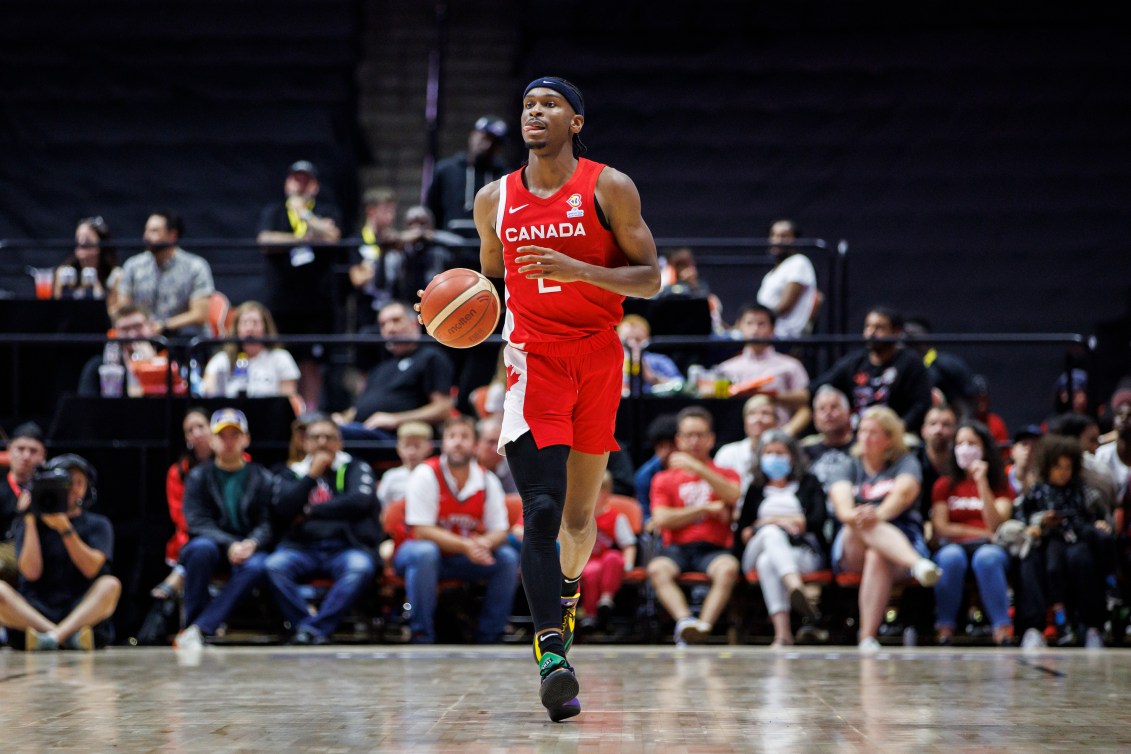
How has Canada done so far in FIBA World Cup qualifying?
Long story short: pretty darn well.
In the first round, Canada was grouped with the Dominican Republic, The Bahamas and U.S Virgin Islands. Canada won all six games for a full 12 points and were the only team to make it through the first round undefeated.
Aside from a relatively narrow 85-79 victory over the Dominican Republic, they were all blowout wins. Canada was the highest scoring team in the first round with 102.5 points per game and Kyle Wiltjer was the overall top scorer (21.8 PPG).
That means Canada began the second round atop Group E with 12 points, ahead of Venezuela and Argentina who each had 11 points thanks to their 5-1 records.
What’s next for Canada in FIBA World Cup qualifying?
Canada will play Argentina, Venezuela and Panama twice each, once at home and once away. Those games are taking place in three windows: August 22-30, 2022; November 7-15, 2022; and February 20-28, 2023.
RECAPS OF AUGUST GAMES:
Canada defeats Argentina, crushes Panama to move a step closer to 2023 FIBA World Cup
Group E also includes the Dominican Republic and Bahamas, but Canada won’t face them again.
With a world ranking of No. 15 (after moving up three spots following the August window), Canada is the second-highest ranked team in the group, behind Argentina (No. 4). Venezuela isn’t too far behind at No. 17.
Heading into the November window, Canada (8-0) remains the only undefeated team. Venezuela (7-1) is second in Group E, followed by Argentina (6-2), Dominican Republic (5-3), Panama (2-6) and Bahamas (2-6).
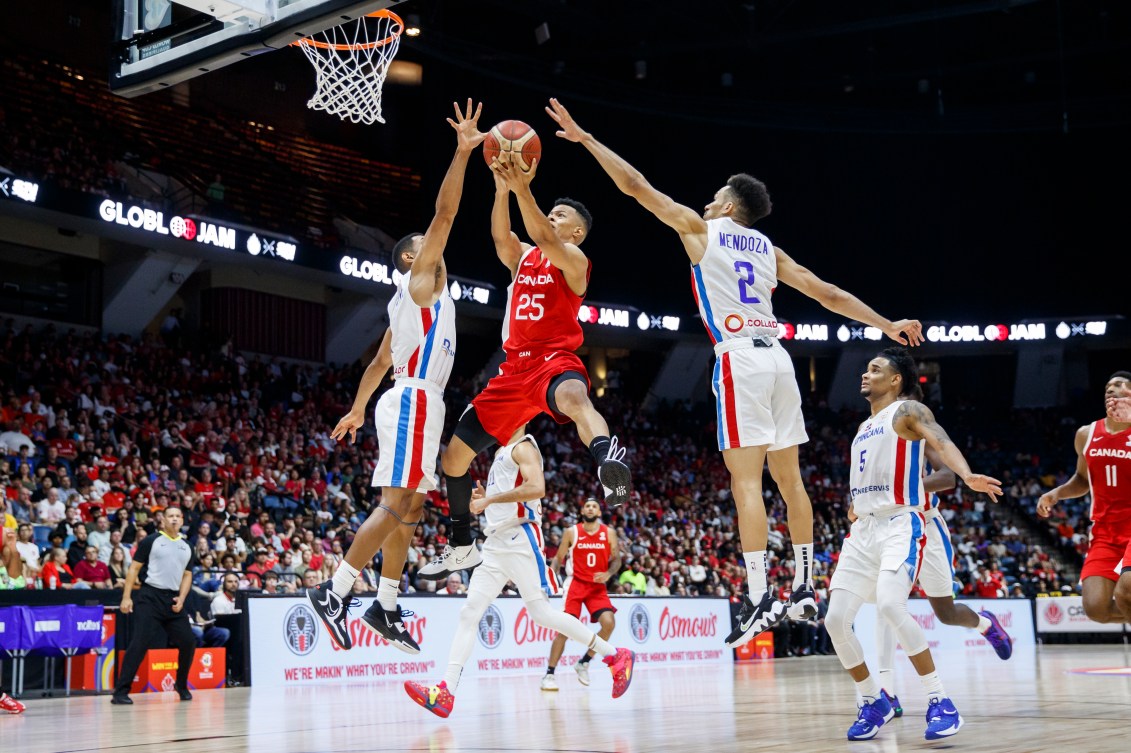
Does the FIBA World Cup have any impact on the Olympics?
Funny you should ask, because indeed it does.
Participation in the FIBA World Cup will also provide a route to Paris 2024 for a number of teams. The two highest-finishing teams from the FIBA Americas zone at the World Cup will qualify for the next Olympic Games.
READ: How Team Canada can qualify for Paris 2024
But regardless of whether Canada achieves that lofty goal, there is still a pathway to Paris via the FIBA Olympic Qualifying Tournaments (FOQTs) which will take place in 2024.
The FOQT route was the one Canada walked while trying to reach Tokyo 2020. But a heartbreaking 103-101 overtime loss to the Czech Republic in the semifinals ended that dream.
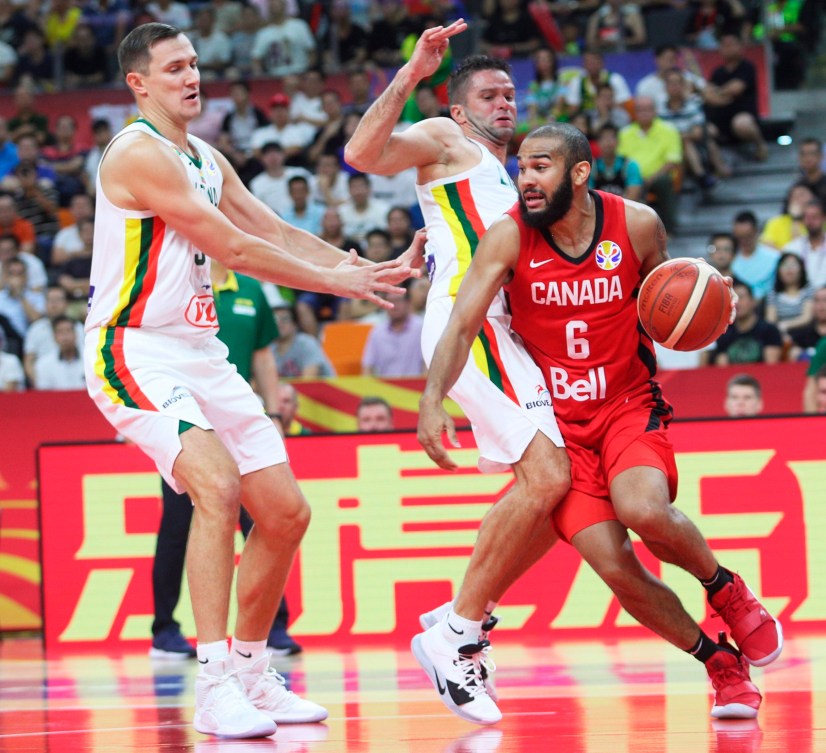
Who’s playing for Team Canada in the FIBA World Cup Qualifiers?
That aforementioned loss inspired the Canadian program to develop more consistency and cohesion in the run-up to Paris 2024.
This past May, Canada Basketball unveiled its summer core roster of 14 players who have made a three-year commitment to the national team, which would include the next Olympic Games.
Under the guidance of Nurse, who’s also head coach of the NBA’s Toronto Raptors, this group includes plenty of NBA pedigree. Cory Joseph and Kelly Olynyk provide veteran leadership, while Jamal Murray, Shai Gilgeous-Alexander and RJ Barrett are among the budding stars yet to hit their prime years. The summer core roster also includes Nickeil Alexander-Walker, Khem Birch, Oshae Brissett, Dillon Brooks, Luguentz Dort, Zach Edey, Melvin Ejim, Kevin Pangos, and Dwight Powell.
For the November games, which are taking place during the NBA season preventing the availability of many players, Canada’s 16-man training camp roster includes:
Trae Bell-Haynes
Aaron Best
Jahvon Henry-Blair
Kenny Chery
Melvin Ejim
Kadre Gray
Thomas Kennedy
Owen Klassen
Conor Morgan
Jean-Victor Mukama
Prince Oduro
Lloyd Pandi
Kassius Robertson
Phil Scrubb
Thomas Scrubb
Kalif Young

